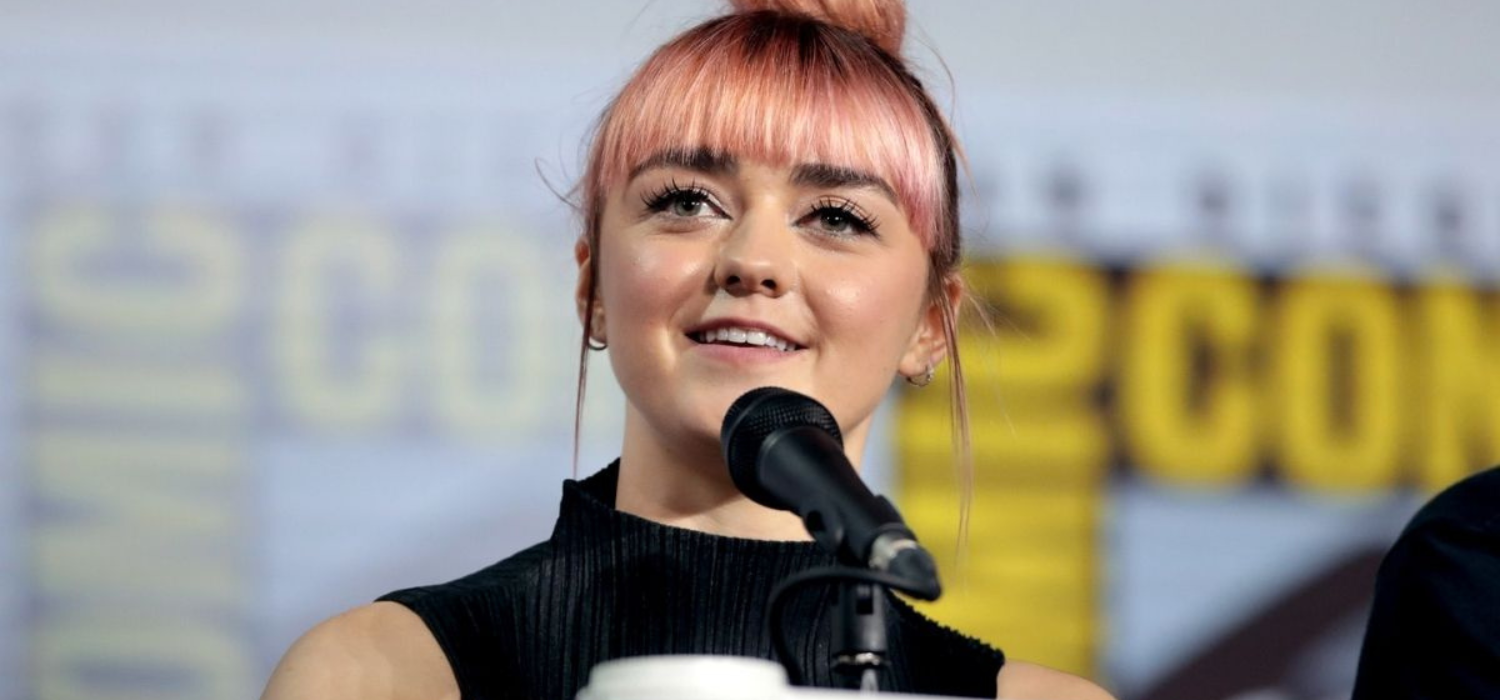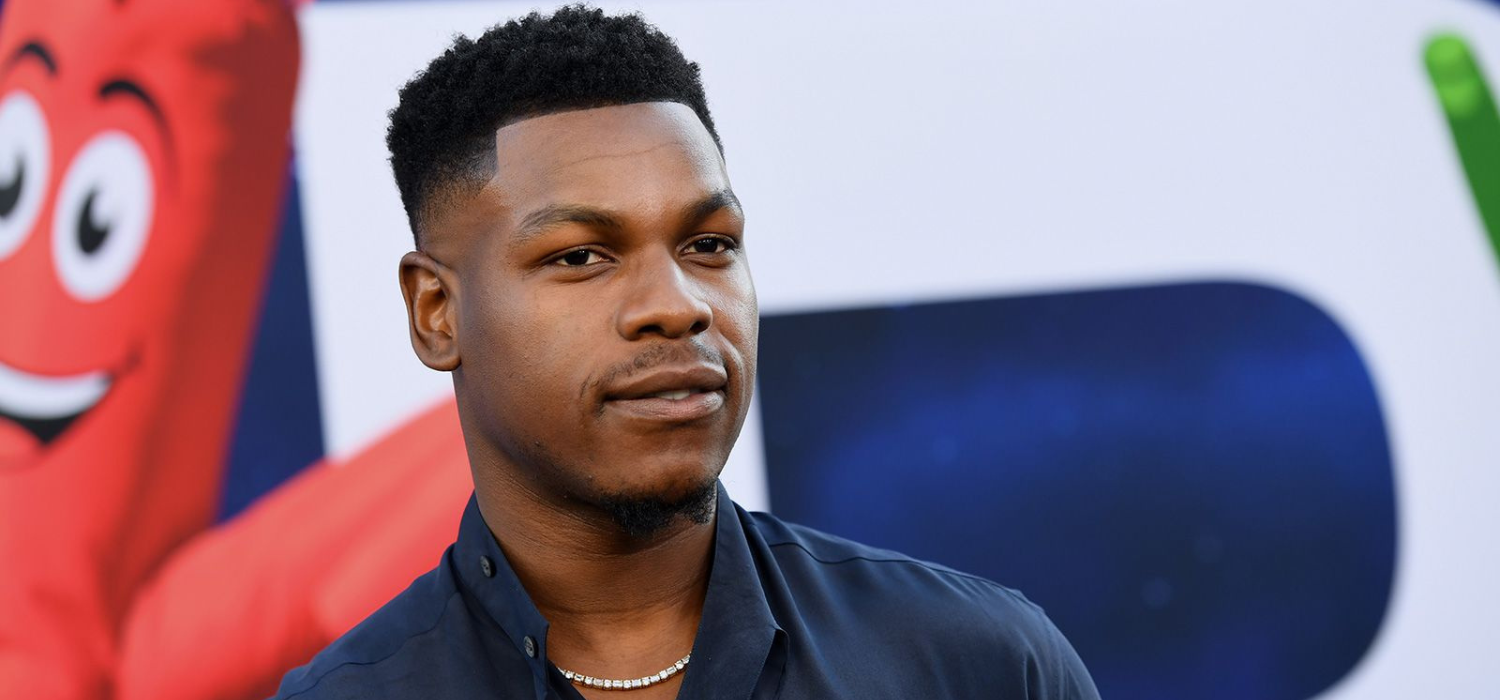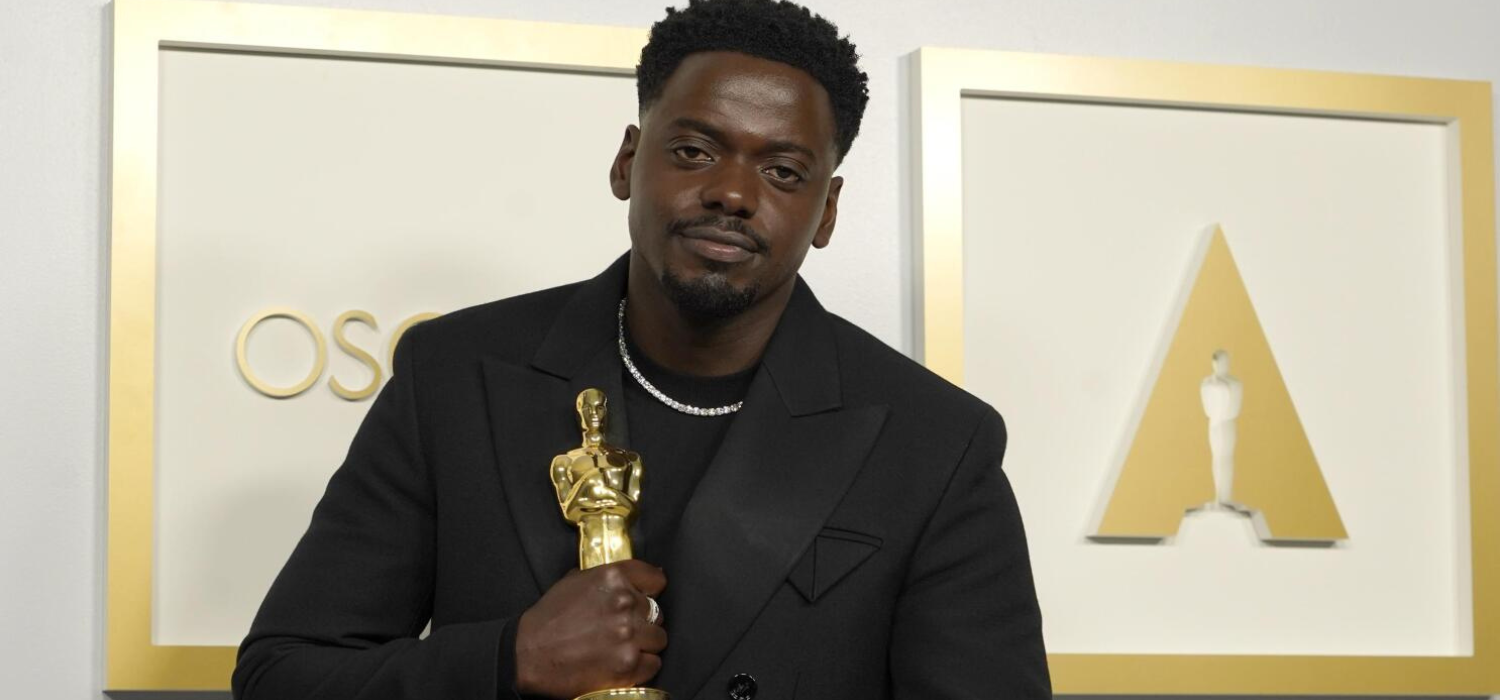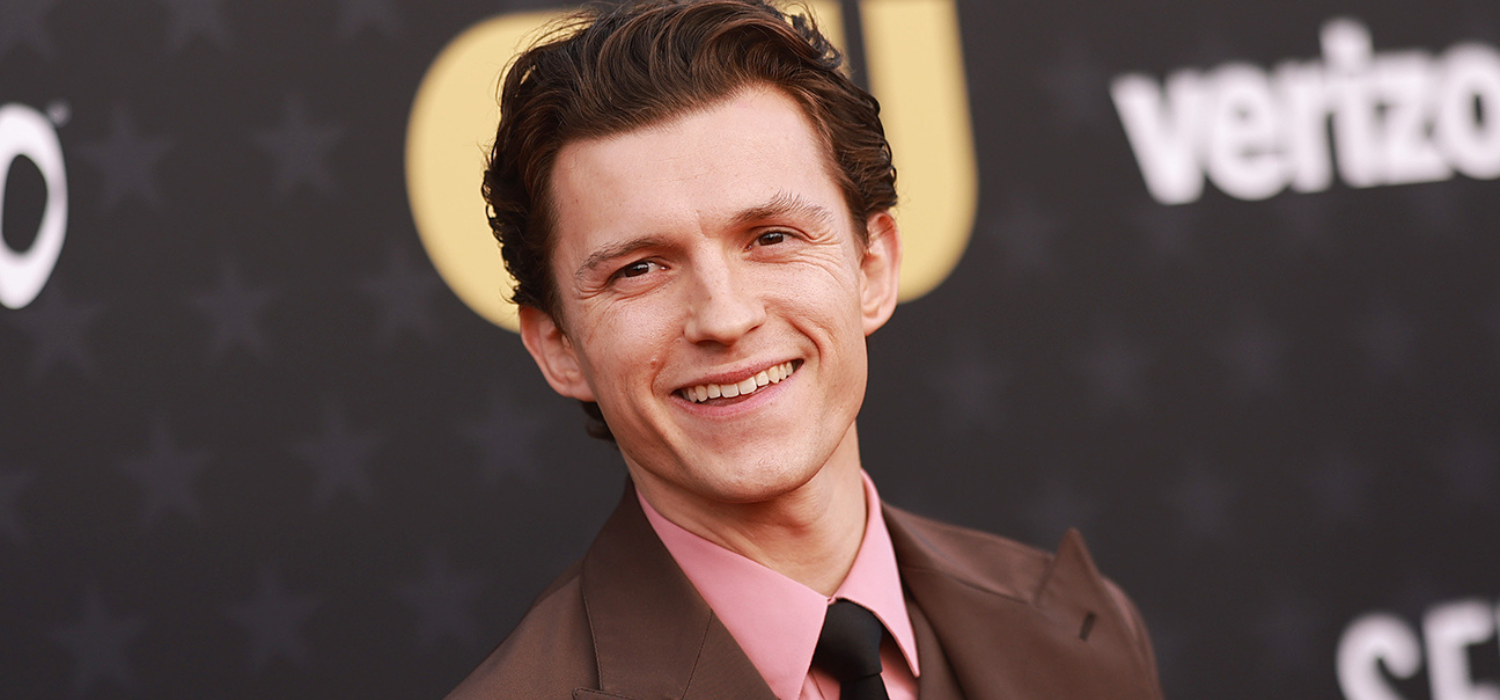Introduction: A Young Talent Who Took the World by Storm Maisie Williams is one of those rare performers who became a household name almost overnight. Best known for her unforgettable role as Arya Stark in Game of Thrones, she transitioned from being a young unknown actress to a global star in record time. What makes Maisie unique, however, is not just her fame but her constant drive to evolve, explore new creative paths, and use her platform for innovation. This blog explores Maisie Williams’s career from her early beginnings to her continued growth in film, television, business, and activism. Her story demonstrates how a young actress can transform early success into a long-term, multi-dimensional career. Early Life and First Steps Toward Acting Her journey from local dance classes to an international TV phenomenon illustrates the power of talent combined with opportunity. Game of Thrones: The Breakout RoleMaisie Williams’s casting in Game of Thrones was her first professional acting role. At only 12 years old, she was suddenly thrust into the spotlight. Arya Stark became one of the most iconic characters in modern television, and Maisie Williams became forever linked to her. Challenges of Early Fame Being catapulted to worldwide fame at such a young age was not without its difficulties. These challenges helped shape her into a strong, independent personality with a desire to control her career trajectory. Awards and Recognition Maisie Williams’s work on Game of Thrones earned her multiple nominations and awards: Her critical acclaim validated her ability to hold her own among seasoned actors. Expanding Beyond Westeros: Exploring New Roles Maisie Williams knew early on that she needed to expand beyond Arya Stark to avoid being typecast. This careful selection of projects signaled her intention to build a sustainable, varied career. Building a Multi-Faceted Career Maisie Williams’s ambition has never been limited to acting. By diversifying her career, she has positioned herself as more than an actress — she’s an innovator, influencer, and advocate. Maisie’s Place in Pop Culture Maisie Williams is more than just a performer; she’s a cultural voice for her generation. Maisie has become a figure who bridges traditional Hollywood fame with modern digital influence. Mid-Career Growth: Breaking Away from Arya Stark After Game of Thrones ended in 2019, Maisie Williams faced one of the most critical transitions of her career. Many young stars struggle to move beyond the role that made them famous, but Maisie approached this challenge head-on. Her career path illustrates her desire to be recognized for her range rather than one iconic role. The New Mutants: Entering the Superhero World In 2020, Maisie starred as Rahne Sinclair (Wolfsbane) in The New Mutants, a Marvel project that blended superhero themes with horror. This role was important for her image as an actress capable of moving between television, indie cinema, and blockbuster franchises. Exploring Independent Cinema Maisie Williams consistently gravitated toward independent films to experiment with unconventional narratives. Indie films allowed Maisie to prove her acting craft, focusing on raw storytelling over commercial appeal. Television Work Beyond Game of Thrones Maisie made deliberate choices in television as well. This period of her career was essential in preventing her from being “typecast” as Arya Stark forever. Entrepreneurial Spirit: Daisie and Creative Empowerment Maisie Williams co-founded Daisie, a social networking app designed for creatives to share, collaborate, and gain exposure. Her entrepreneurial drive shows that she sees herself as more than an actress—she’s a creative force. Fashion Influence and Global Style Presence Maisie’s fashion evolution has been as bold as her acting choices. Maisie’s style complements her career path: unpredictable, bold, and unafraid of change. Advocacy and Social Responsibility Maisie uses her platform for meaningful causes: Her advocacy ensures she is not only remembered as an actress but also as a socially responsible figure. Collaborations with Esteemed Artists Maisie Williams has worked with some of the most talented names in the industry. Each collaboration expanded her network and positioned her as a versatile performer who can adapt to different creative teams. Awards and Continued Recognition Though Game of Thrones was her primary source of award nominations, Maisie has continued to gain recognition. These honors highlight her continued relevance as a multi-talented creative professional. Transitioning into Adulthood on Screen Maisie Williams’s recent roles emphasize her growth into adult characters. Her willingness to take on challenging material reflects her determination to craft a career with depth. Latest Projects and Expanding Horizons As Maisie Williams moves further into adulthood, her projects reflect a stronger sense of purpose and artistic direction. Maisie’s recent choices highlight her as an actress who is fearless in both performance and personal branding. Behind-the-Scenes Insights: Maisie as a Professional Colleagues frequently describe Maisie Williams as hardworking, collaborative, and innovative. These qualities reinforce her reputation not only as a performer but also as a respected member of the creative community. Cultural Impact of Arya Stark and Beyond Although Maisie has taken on diverse roles, Arya Stark remains one of television’s most impactful characters. This balance between embracing and transcending her breakout role is one of Maisie’s greatest career strengths. Industry Influence and Next Steps Maisie Williams is part of a new wave of actors reshaping the entertainment industry. The next decade of her career is expected to showcase even more risk-taking, including directorial ventures or producing roles. Fanbase and Enduring Popularity Maisie’s fans, who grew up alongside her during Game of Thrones, continue to follow her journey. Her ability to connect directly with fans ensures she remains relevant even outside traditional Hollywood circles. The Legacy of a Young Icon Though still in her 20s, Maisie Williams has already left a lasting legacy: Maisie represents the best of a new generation of British actors who balance fame with purpose. Conclusion: A Career Defined by Evolution Maisie Williams’s journey from Arya Stark to independent film star, entrepreneur, and activist is a powerful reminder that careers are not defined by a single role. Instead, they are built on curiosity, courage, and reinvention. Her career so far
Young Star: John Boyega and His Inspiring Acting Journey
Introduction: A Modern Icon in British Cinema John Boyega has emerged as one of the most prominent and inspiring young actors of his generation. Born in London to Nigerian parents, Boyega’s story is one of passion, persistence, and determination. From humble beginnings to international stardom, his journey encapsulates the struggles and triumphs of an actor who has become a voice for diversity, equality, and change in the global film industry. This blog explores his life, career, and the impact he continues to make both on and off the screen. Early Life and Roots in Peckham John Adedayo Bamidele Adegboyega was born on March 17, 1992, in Peckham, South London. Growing up in a working-class neighborhood, Boyega faced challenges that would later influence his worldview and performances. His Nigerian heritage played a significant role in shaping his identity, as he navigated life between two cultures: the vibrant African traditions of his family and the urban landscape of London. Even as a child, Boyega exhibited a strong interest in storytelling and performance. His teachers recognized his talent early, often praising his ability to captivate an audience with dramatic flair. At the age of nine, he began training with Theatre Peckham, a local arts organization that provided a safe space for young people to develop their talents. This grassroots foundation instilled in him discipline, creativity, and resilience—qualities that became central to his career. Education and Training Boyega attended Westminster City School, where he balanced academics with his love for drama. His participation in school plays reinforced his dream of becoming an actor. Later, he studied Performing Arts at South Thames College before attending the University of Greenwich. Though he eventually left university to focus fully on acting, his formal education and practical training helped sharpen his craft. He also joined the Identity School of Acting in London, a place known for nurturing Black and minority ethnic actors. Alumni include stars like Letitia Wright, Damson Idris, and Michaela Coel. The school became a launchpad for Boyega, equipping him with professional skills and connecting him with a network of industry opportunities. Breakthrough with Attack the Block In 2011, Boyega landed his breakout role in the British sci-fi comedy film Attack the Block. Playing Moses, a teenage gang leader who defends his neighborhood against alien invaders, Boyega immediately captured critical attention. The film became a cult classic, praised for its originality, social commentary, and Boyega’s magnetic performance. Critics highlighted his ability to blend toughness with vulnerability, making Moses both relatable and heroic. Attack the Block not only introduced Boyega to audiences worldwide but also signaled the arrival of a fresh and powerful talent in British cinema. Hollywood Breakthrough: Star Wars and Global Fame Boyega’s career took a historic leap in 2015 when he was cast as Finn in Star Wars: The Force Awakens. His role as a former Stormtrooper turned hero was groundbreaking, marking one of the most prominent Black lead roles in the franchise. The film became a global phenomenon, grossing over $2 billion worldwide. Boyega’s portrayal of Finn was celebrated for its humor, humanity, and depth. His chemistry with co-stars Daisy Ridley and Oscar Isaac added to the film’s charm, making him a beloved figure among fans. Boyega reprised the role in The Last Jedi (2017) and The Rise of Skywalker (2019), solidifying his place in Hollywood. Beyond the screen, his casting in such a major franchise signaled progress for representation in blockbuster cinema. Challenges Within the Franchise While Star Wars catapulted Boyega to international stardom, it also exposed him to the challenges faced by actors of color in Hollywood. Boyega has been candid about his frustrations with how his character was sidelined in the later films and how Black characters often face underdevelopment in big-budget franchises. His openness sparked important conversations about diversity, inclusion, and equity in the film industry. Boyega’s courage in speaking out—even at the risk of professional backlash—demonstrates his commitment to authenticity and justice, both on and off screen. Expanding Beyond Blockbusters Determined not to be typecast, Boyega deliberately pursued diverse roles outside of Star Wars. In Kathryn Bigelow’s Detroit (2017), he portrayed a security guard caught in the midst of racial tensions during the 1967 Detroit riots. The performance earned critical acclaim, showcasing his dramatic range and ability to handle complex, socially charged material. He also starred in films like Pacific Rim: Uprising (2018) and independent projects that allowed him to flex his creative muscles. Boyega’s choices reflect his ambition to balance mainstream success with meaningful, artistic storytelling. Championing Diversity and Representation Boyega has become an outspoken advocate for racial equality in the entertainment industry. He uses his platform to demand fair treatment, better representation, and opportunities for underrepresented communities. His advocacy gained global attention during the Black Lives Matter protests in 2020, where he delivered a powerful speech in London’s Hyde Park. The moment went viral, with many praising him for his courage and authenticity. Boyega risked his career by openly criticizing systemic racism, but instead, his bold stance strengthened his role as both an artist and an activist. Awards and Recognition Throughout his career, Boyega has earned numerous accolades. He won the BAFTA Rising Star Award in 2016, cementing his status as one of Britain’s most promising talents. His role in Small Axe: Red, White and Blue (2020), directed by Steve McQueen, earned him a Golden Globe Award for Best Supporting Actor. These recognitions underscore his ability to bring nuance and depth to every character he portrays, whether in blockbuster franchises or intimate television dramas. John Boyega as a Producer In addition to acting, Boyega has stepped into producing. Through his production company, UpperRoom Productions, he aims to champion diverse voices and stories often overlooked by mainstream cinema. By taking control of the creative process, Boyega seeks to pave the way for new generations of storytellers. His transition from actor to producer signals his long-term vision: to not only perform in great stories but to create them. Influence on Young Actors Boyega’s journey inspires aspiring actors
Breakthrough Talent: Anya Taylor-Joy as a Global Sensation
Introduction: A Star on the Rise Few names in modern cinema have risen as swiftly and brilliantly as Anya Taylor-Joy. From her haunting debut in The Witch to her globally acclaimed performance in The Queen’s Gambit, she has proven herself a true force of talent. With her distinctive looks, magnetic screen presence, and an ability to embody characters that linger in the minds of audiences, Anya Taylor-Joy has become a global sensation. Her journey reflects the dynamic shifts in Hollywood, where unique voices and fresh faces redefine the landscape of storytelling. Early Life and Background Born in Miami, Florida, in 1996, to parents of diverse heritage—Scottish-Argentine and Spanish-English—Anya Taylor-Joy grew up surrounded by a multicultural identity. Her early years were spent in Argentina, where she spoke Spanish as her first language, before relocating to London in her teenage years. This blend of backgrounds gave her not only linguistic flexibility but also a strong sense of cultural diversity, which would later enhance her acting depth. Anya’s move to London proved pivotal. While adapting to a new life, she discovered her love for performing. Her passion for dance, particularly ballet, initially shaped her artistic discipline. However, as fate would have it, she eventually shifted her focus to acting—a decision that would catapult her to stardom. Discovering a Calling: The Road to Acting Like many great actors, Anya Taylor-Joy’s path to film was not straightforward. She was scouted as a model at the age of 16, but soon realized that acting was her true calling. Her striking features and ethereal presence caught the attention of casting directors, and it wasn’t long before she transitioned into screen auditions. Her first major breakthrough came with a small role in Endeavour (2014), a British detective drama, followed by an appearance in Vampire Academy (2014). Though these early roles were modest, they offered her invaluable experience on set and a glimpse into the craft she would master. The turning point, however, came in 2015, when director Robert Eggers cast her in The Witch. This atmospheric horror film became her breakout project, introducing her as a mesmerizing talent to critics and audiences alike. The Witch (2015): A Defining Debut Anya Taylor-Joy’s role as Thomasin in The Witch was nothing short of transformative. The film, set in 1630s New England, told the story of a Puritan family unraveling amidst fear and suspicion of witchcraft. Taylor-Joy’s portrayal of Thomasin—a young girl caught between oppressive family dynamics and supernatural forces—was both unsettling and deeply empathetic. Her haunting expressions, coupled with a maturity beyond her years, captivated critics. The film was praised as a modern horror masterpiece, and Anya’s performance quickly established her as a rising star. For many, The Witch remains one of the finest horror debuts of the 21st century, cementing her reputation as an actress unafraid to embrace challenging roles. Expanding Horizons: Split and Glass Following The Witch, Taylor-Joy’s career accelerated rapidly. She joined M. Night Shyamalan’s Split (2016) alongside James McAvoy, portraying Casey Cooke, a teenager abducted by a man with dissociative identity disorder. Her ability to balance vulnerability with resilience resonated with audiences, making her character a fan favorite. The success of Split not only introduced Taylor-Joy to wider commercial audiences but also led to her reprising the role in Glass (2019). This collaboration with Shyamalan highlighted her adaptability and cemented her status in both independent cinema and mainstream Hollywood productions. Indie Darling: Embracing Complex Roles Even as she achieved commercial recognition, Taylor-Joy continued to embrace independent films. She starred in projects such as Thoroughbreds (2017), a dark comedy where her performance as Lily demonstrated her knack for playing morally ambiguous characters. Her choices reflected a career driven less by fame and more by artistry. Rather than sticking to safe roles, Taylor-Joy consistently pursued characters that were layered, flawed, and intriguing. This dedication to artistic integrity has made her one of the most respected young actors in the industry. Emma (2020): A Fresh Take on a Classic In 2020, Taylor-Joy took on the role of Emma Woodhouse in the period comedy Emma, adapted from Jane Austen’s beloved novel. While many actresses had previously portrayed Emma, Taylor-Joy’s version brought a distinct blend of wit, charm, and sharpness. Her performance struck a balance between Austen’s satire and modern sensibilities, introducing the classic character to a new generation of viewers. The film received critical acclaim, and Taylor-Joy’s portrayal earned her a Golden Globe nomination. The Queen’s Gambit (2020): A Global Phenomenon If The Witch made Anya Taylor-Joy a breakout star, then The Queen’s Gambit made her a global sensation. Released on Netflix, the limited series followed Beth Harmon, a chess prodigy navigating addiction, personal loss, and the pressures of success in a male-dominated field. Taylor-Joy’s performance was universally praised. She brought Beth to life with nuance, capturing both her brilliance and her inner struggles. The series became one of Netflix’s most-watched shows, sparking renewed global interest in chess and making Taylor-Joy a household name. Her role earned her numerous awards, including a Golden Globe for Best Actress in a Limited Series, a Screen Actors Guild Award, and an Emmy nomination. Beyond accolades, The Queen’s Gambit cemented her influence in popular culture, proving her power as a global icon. Last Night in Soho (2021): A Psychological Tour de Force After the enormous success of The Queen’s Gambit, Anya Taylor-Joy continued to push her boundaries with Last Night in Soho (2021), directed by Edgar Wright. The psychological thriller blended time-traveling fantasy with horror and drama, creating a visually stunning and narratively complex experience. Taylor-Joy portrayed Sandie, a glamorous yet tragic singer in 1960s London, whose dreams of stardom unravel into a dark spiral. With her magnetic presence, she perfectly captured the allure of the era while also exposing its dangers. The role allowed her to showcase her singing talent with the performance of “Downtown,” which became a standout moment of the film. Critics praised her portrayal for its balance of charm and vulnerability. While the film divided audiences in terms of
Rising Star: Daniel Kaluuya’s Path from London to Hollywood
Introduction: The Rise of a Modern Icon British cinema has always been known for producing world-class actors whose work resonates far beyond the United Kingdom. In recent decades, few actors have captured the imagination of both critics and audiences the way Daniel Kaluuya has. With his commanding presence, emotional depth, and fearless approach to storytelling, Kaluuya has transitioned from the vibrant neighborhoods of London to the dazzling spotlight of Hollywood. His journey reflects not only his personal talent but also the evolution of British acting on the international stage. Early Life in London Roots and Upbringing Daniel Kaluuya was born in London in 1989 to Ugandan parents. Growing up in Camden, his environment was filled with cultural diversity, challenges, and opportunities for self-expression. His early life experiences gave him a deep understanding of identity, struggle, and resilience—qualities that would later shine through in his acting. Discovering Acting From a young age, Kaluuya gravitated toward writing and storytelling. By the time he was nine, he had already written his first play, which was performed at Hampstead Theatre. His creative spark and sharp eye for character development became evident, laying the foundation for his future career. First Steps in the Acting World Entry into Television Like many British actors, Daniel Kaluuya’s career began with small roles on British television. His early appearances in shows such as Shoot the Messenger and Silent Witness gave him practical exposure to professional acting environments. Breakthrough with Skins His first major recognition came from Skins, the Channel 4 series that redefined teen drama for a generation. Not only did he play the character of Posh Kenneth, but he also wrote several episodes, showcasing his multi-talented approach to storytelling. Skins allowed him to experiment with creativity while providing visibility in the UK entertainment industry. Breaking Barriers with Stage Performances Theatrical Excellence While television gave him a start, Kaluuya also pursued theater passionately. His stage work in productions like Sucker Punch at the Royal Court Theatre earned him critical acclaim. The role highlighted his physicality, intensity, and emotional intelligence, winning him awards and catching the attention of casting directors worldwide. Learning the Craft The theater experience gave Kaluuya an unmatched depth in performance. British theater has a rich legacy, and Kaluuya’s immersion in this tradition provided him with a foundation that would later distinguish him in film. Transition to Film Smaller Roles in British Cinema In the early 2010s, Daniel Kaluuya started taking on film roles, including supporting parts in Johnny English Reborn and Kick-Ass 2. Though minor, these appearances helped him gain confidence and learn the mechanics of film acting. Breakthrough with Get Out Kaluuya’s career-defining moment came with Jordan Peele’s Get Out in 2017. His portrayal of Chris Washington, a young Black man trapped in a terrifying social experiment, became iconic. The film was both a cultural phenomenon and a box-office success, with Kaluuya receiving an Academy Award nomination for Best Actor. His performance was lauded for its emotional vulnerability, subtlety, and sheer intensity. Recognition in Hollywood Awards and Nominations Following Get Out, Kaluuya quickly rose to prominence in Hollywood. His performance earned him nominations from the Oscars, Golden Globes, BAFTAs, and Screen Actors Guild Awards. This level of recognition established him as one of the most respected young actors of his generation. Expanding His Filmography Kaluuya followed up his breakout with roles in Black Panther (2018), Widows (2018), and Queen & Slim (2019). Each project showcased a different facet of his ability—ranging from blockbuster intensity to intimate drama. His choices reflected an intentional strategy to balance commercial appeal with artistic depth. Defining Role: Judas and the Black Messiah Embodying Fred Hampton Kaluuya’s portrayal of Fred Hampton, chairman of the Illinois chapter of the Black Panther Party, in Judas and the Black Messiah (2021) remains one of his most powerful performances. His ability to capture Hampton’s passion, charisma, and revolutionary spirit stunned critics and audiences alike. Oscar Win For this role, Kaluuya won the Academy Award for Best Supporting Actor, making history as one of the youngest actors to achieve this recognition. His acceptance speech, infused with gratitude and humility, highlighted his journey from Camden to Hollywood’s highest stage. Representing Black British Talent Breaking Stereotypes Kaluuya’s success also brought attention to the presence of Black British actors in Hollywood. His achievements broke barriers, showing that talent from diverse backgrounds could thrive globally. Advocating for Representation Throughout his career, Kaluuya has spoken openly about diversity, representation, and the importance of telling authentic stories. He has consistently chosen roles that challenge societal stereotypes, ensuring that his work resonates with cultural and political significance. Versatility on Screen Blockbuster Presence From Marvel’s Black Panther to ensemble casts like Widows, Kaluuya has shown his ability to thrive in large-scale productions. His presence elevates blockbuster films, proving that he can bring gravitas even to commercial projects. Indie and Dramatic Choices At the same time, Kaluuya has maintained a strong presence in independent films. Movies like Queen & Slim highlight his interest in socially conscious narratives, where emotional truth is as important as cinematic spectacle. From Actor to Producer Expanding Horizons Daniel Kaluuya has also moved into producing, taking on greater control over the types of stories he wants to tell. By stepping behind the camera, he ensures that underrepresented voices and unique perspectives have a platform. Commitment to Storytelling For Kaluuya, production is a natural extension of his acting career. His love for storytelling drives him to explore different formats and ensure that the next generation of creatives has opportunities to thrive. The Importance of London Roots Camden Influence Despite his Hollywood success, Kaluuya often reflects on his London upbringing. The experiences of growing up in Camden, surrounded by cultural diversity and urban challenges, shaped his worldview and continues to inform his performances. Staying Grounded His London roots keep him grounded, reminding him of the community and struggles that shaped his journey. He often credits his background for giving him the resilience to succeed in an industry known for its difficulties. Inspiring
Breakout Icon: Emma Mackey and the New Wave of British Acting
Introduction: A New Era for British Talent The landscape of British acting has consistently produced some of the most captivating figures in the global entertainment industry. From Shakespearean veterans to modern screen stars, Britain has long been a hub of extraordinary talent. In recent years, however, a new wave of actors has emerged—youthful, versatile, and unafraid to challenge conventions. Among them, Emma Mackey stands out as one of the most promising and influential voices. Known initially for her breakout role in Netflix’s Sex Education, Mackey has since carved out a distinct identity that extends far beyond the boundaries of television. With her sharp screen presence, natural charisma, and remarkable adaptability, she has become a beacon of the modern acting generation. This blog delves deep into Emma Mackey’s journey, her roles, her influence, and the larger movement of new British actors redefining the global stage. Early Life and Formative Years Emma Mackey was born in Le Mans, France, to a French father and an English mother, giving her a bi-cultural heritage that would later enrich her acting identity. Growing up in the Loire Valley, she developed a strong connection to both British and French culture, allowing her to bridge two artistic traditions that value storytelling in distinct but complementary ways. Her educational journey brought her to the United Kingdom, where she studied English language and literature at the University of Leeds. While there, Mackey immersed herself in theatre, experimenting with performance styles and building a foundation that would serve her later career. Unlike many actors who take a traditional drama school route, Mackey’s academic focus on literature gave her a broader perspective on character development, narrative construction, and thematic depth. The Breakout Moment: Sex Education The turning point in Emma Mackey’s career came in 2019 with the release of Netflix’s Sex Education. Cast as Maeve Wiley, Mackey embodied a character who was sharp-witted, independent, and layered with emotional complexity. Maeve was not a typical “bad girl” trope but a nuanced representation of a young woman navigating socioeconomic challenges, intelligence, and vulnerability. Mackey’s performance resonated instantly with audiences. Viewers praised her ability to convey strength and fragility simultaneously, making Maeve one of the most beloved characters in the series. Critics highlighted how Mackey brought depth to what could have easily been a one-dimensional role, and her delivery elevated Sex Education from just another teen comedy-drama into a cultural phenomenon. Beyond character appeal, Sex Education marked Mackey’s entrance into global stardom. The show’s reach across international audiences cemented her place as a rising talent to watch. Rising Fame and Industry Recognition With the success of Sex Education, Mackey’s profile soared. She was quickly recognized not just as an actress tied to a hit series, but as an artist with considerable range. Her nominations at the BAFTA Television Awards and other prestigious recognitions demonstrated how seriously the industry regarded her abilities. Critics often noted her uncanny resemblance to Margot Robbie, which initially became a point of conversation in the media. While this comparison brought her attention, Mackey emphasized individuality in her craft, steering clear of being typecast or reduced to her appearance. Instead, she leaned into projects that showcased her unique qualities and vision. Transitioning to Cinema After establishing herself on television, Emma Mackey transitioned into film roles that further cemented her versatility. She appeared in Kenneth Branagh’s Death on the Nile (2022), where she played Jacqueline de Bellefort, a role requiring a blend of passion, vulnerability, and intensity. Mackey delivered a memorable performance, standing out in an ensemble filled with high-profile stars. Her work in Eiffel (2021) and Emily (2022) also demonstrated her artistic depth. In Emily, Mackey took on the role of Emily Brontë, showcasing her ability to embody historical figures with sensitivity and strength. The performance was lauded for its authenticity and emotional power, earning her the BAFTA Rising Star Award in 2023. This recognition placed her firmly among the most promising talents of her generation. Craft and Style: What Makes Mackey Stand Out Emma Mackey’s craft is defined by a combination of intellectual engagement, emotional intelligence, and fearlessness. Unlike some actors who rely heavily on method or technique, Mackey has cultivated an intuitive approach, grounded in her literary studies and theatre experiences. 1. Intellectual Depth Her background in literature gives her a sharp analytical ability. She approaches characters with an eye for textual nuance, ensuring that her performances reflect thematic and psychological complexity. 2. Emotional Versatility Whether portraying the witty resilience of Maeve or the tortured brilliance of Emily Brontë, Mackey displays remarkable range. She captures subtle emotional transitions, making her characters believable and engaging. 3. Fearlessness in Role Choices From contemporary dramas to period pieces, Mackey has shown a willingness to experiment across genres. This adaptability positions her as a dynamic force within the British acting scene. A Voice for the New Generation Emma Mackey represents more than individual success; she embodies the ethos of a new generation of British actors who are reshaping industry expectations. This new wave emphasizes inclusivity, authenticity, and emotional resonance over traditional star archetypes. Unlike earlier generations, where actors often leaned heavily on prestige theatre training, Mackey and her contemporaries reflect a more diverse set of pathways into the industry. Her story highlights the growing permeability between television, streaming platforms, and cinema, showing how modern actors can fluidly move between mediums. Global Influence and Cultural Reach Thanks to platforms like Netflix, Emma Mackey’s work reaches a global audience instantly. Her roles resonate not only in the UK but across continents. For younger viewers, Maeve Wiley became a symbol of independence and intelligence, inspiring conversations about gender roles, socioeconomic struggles, and personal empowerment. Her influence extends into fashion and culture as well. Frequently featured in high-profile magazines and campaigns, Mackey’s style reflects her artistic sensibilities—chic, understated, and unapologetically authentic. This alignment between her screen presence and public image amplifies her impact as a cultural icon. Emma Mackey and the Future of British Acting Mackey is not an isolated case but part of a collective
Young Talent in Focus: Tom Holland’s Impact on Modern Cinema
Introduction In the modern age of cinema, few names have risen as swiftly and with as much global recognition as Tom Holland. Known primarily for his role as Spider-Man in the Marvel Cinematic Universe, Holland has grown from a child actor with extraordinary talent to a global superstar admired by critics and audiences alike. His journey is not just about fame—it is also about redefining what it means to be a young actor in today’s film industry. Tom Holland’s career encapsulates the delicate balance between blockbuster success and critical artistry. While superhero franchises have propelled him into the limelight, his performances in dramas, thrillers, and stage productions reveal a deeper versatility. This duality has allowed him to not only inspire younger generations of actors but also to influence how modern cinema embraces youth, talent, and authenticity. Early Life and Passion for Performance Tom Holland was born on June 1, 1996, in Kingston upon Thames, England. Growing up in a creative household—his father, Dominic Holland, being a comedian and author—Tom was exposed early to the world of performance and storytelling. His mother, Nicola, a photographer, also encouraged his creative instincts. Holland’s interest in performing arts began during his childhood when he took part in dance classes. His natural talent for rhythm and movement caught the attention of his teachers, who encouraged him to pursue dance more seriously. Although he initially faced bullying for his interest in ballet, his determination to continue would eventually become the foundation for his future stage and screen performances. His early training in dance and gymnastics would later prove invaluable, not only for his stage roles but also for the physically demanding performances required in action films. This combination of discipline, artistry, and resilience shaped him into an actor uniquely equipped to excel in diverse roles. Breakthrough on Stage: Billy Elliot the Musical Tom Holland’s first significant breakthrough came on the stage of London’s West End. After extensive auditions and training, he landed the role of Michael, the best friend of Billy, in Billy Elliot the Musical in 2008. His performance quickly impressed audiences and producers, leading to his eventual casting as Billy Elliot himself. Portraying Billy was no small task. The role required not only strong acting ability but also exceptional dance skills, stamina, and emotional depth. Holland’s ability to embody a working-class boy striving to become a ballet dancer highlighted his versatility and commitment at such a young age. Critics and theatre enthusiasts praised him for his maturity and authenticity, qualities rare in child actors. This stage experience was more than just a stepping stone—it was an intensive training ground. The discipline of live theatre, with its demands for precision, stamina, and emotional consistency, gave Holland a foundation that continues to influence his performances on screen. Transition to Film: Early Roles Tom Holland made his film debut in The Impossible (2012), a disaster drama directed by J.A. Bayona. The film, based on the true story of a family’s survival during the 2004 Indian Ocean tsunami, required Holland to convey raw vulnerability and emotional resilience. Playing Lucas, the eldest son, he delivered a performance that stunned critics worldwide. The role earned him numerous accolades, including recognition from the London Film Critics’ Circle and the National Board of Review. What stood out was his ability to portray both innocence and responsibility—qualities that resonated deeply with audiences. This performance solidified him as more than just a theatre-trained child actor; he was a rising star with the potential to take on challenging cinematic roles. Following The Impossible, Holland continued to explore diverse roles in films like How I Live Now (2013) and In the Heart of the Sea (2015). Each project revealed new facets of his acting range, preparing him for the massive opportunities that lay ahead. Spider-Man: The Defining Role When Tom Holland was announced as the new Spider-Man in 2015, reactions were mixed. Many wondered if such a young actor could carry the weight of an iconic superhero role previously portrayed by Tobey Maguire and Andrew Garfield. Yet Holland not only stepped into the role—he redefined it. Making his first appearance as Peter Parker in Captain America: Civil War (2016), Holland immediately won over audiences with his natural charisma, humor, and athleticism. Unlike previous versions, his Spider-Man felt authentically teenage, balancing the awkwardness of high school with the responsibility of being a superhero. His portrayal across standalone films like Spider-Man: Homecoming (2017), Spider-Man: Far From Home (2019), and the record-breaking Spider-Man: No Way Home (2021) cemented his place in Hollywood. Critics praised his ability to bring emotional depth to the role, particularly in moments where Peter Parker faced personal loss and moral dilemmas. Beyond critical reception, his Spider-Man became a cultural phenomenon. Holland bridged generational divides, appealing to both younger audiences discovering the character for the first time and long-time fans seeking a fresh perspective. His performance was central to making Spider-Man one of the most successful franchises in cinema history. Balancing Blockbusters and Dramatic Roles Despite his massive success as Spider-Man, Tom Holland has consistently sought to diversify his career. He avoided being typecast by taking on roles in projects outside the superhero genre. In The Devil All the Time (2020), he played Arvin Russell, a young man navigating violence and corruption in post-war America. The role showcased a darker, more mature side of Holland, proving his ability to handle complex psychological characters. Similarly, in Cherry (2021), directed by the Russo brothers, Holland portrayed a war veteran struggling with PTSD and addiction. The performance required vulnerability, intensity, and a willingness to embrace unflattering realities. While the film received mixed reviews, critics acknowledged Holland’s fearless commitment to the role. By alternating between commercial and artistic projects, Holland demonstrates an understanding of career longevity. He has positioned himself not only as a bankable star but also as an actor willing to take creative risks. Influence on Young Audiences Tom Holland’s appeal goes far beyond box office numbers. He has become a cultural role model for younger audiences
Rising Star: Florence Pugh and Her Journey to Global Fame
Introduction: A New Face of British Cinema The landscape of global cinema is constantly evolving, and every decade presents new stars who redefine artistry, storytelling, and audience connection. Florence Pugh stands as one of the most compelling actors of her generation, carving a path that blends authenticity, versatility, and courage. Known for her powerful screen presence, remarkable ability to embody diverse characters, and her refusal to be confined by stereotypes, Pugh has rapidly become a household name in both independent film circles and Hollywood blockbusters. Her journey to global fame reflects not only her personal determination but also the broader evolution of British talent making waves internationally. From her early life in Oxford to becoming a sought-after performer on the global stage, Florence Pugh represents the resilience, creativity, and adaptability that define modern acting. Early Life and Influences Florence Pugh was born on January 3, 1996, in Oxford, England. Raised in a supportive family that valued creativity, she was encouraged to explore the arts from a young age. Her father, a restaurateur, and her mother, a dancer, nurtured her creative spirit while allowing her the freedom to carve her own path. A significant aspect of her early life was her battle with health issues, including tracheomalacia, a condition that affected her breathing. Instead of letting this challenge hold her back, Pugh transformed it into resilience, which would later define her performances. She grew up surrounded by a family that valued artistic expression—her siblings are also engaged in creative fields—providing her with a strong foundation for pursuing a career in acting. During her formative years, she developed a deep appreciation for music and performance. She sang, played guitar, and uploaded cover songs on YouTube under the name “Flossie Rose,” showcasing her natural talent and confidence. This early exposure to public expression laid the groundwork for the fearless authenticity she would bring to her film career. The Breakthrough: The Falling (2014) Florence Pugh’s professional debut came in Carol Morley’s The Falling (2014), a British drama set in an all-girls school during the 1960s. In her role as Abbie Mortimer, Pugh displayed raw talent and emotional depth that immediately caught the attention of critics and industry insiders. Although only 18 at the time, her performance revealed maturity and a natural ability to inhabit complex characters. She was nominated for the British Independent Film Award for Best Newcomer, an early recognition that signaled the beginning of something remarkable. While The Falling may not have been a mainstream box office success, it positioned Pugh as a rising talent within the British film industry. More importantly, it highlighted her unique presence on screen—an ability to draw viewers in with understated intensity and emotional honesty. Struggles and Determination in the Early Years The years following The Falling were not immediately filled with stardom. Like many young actors, Pugh faced the challenges of auditioning, typecasting, and navigating the competitive world of film and television. Her determination during this period, however, became one of her defining traits. She consistently sought roles that challenged stereotypes of young women in film. Instead of leaning toward lighthearted teen dramas, she gravitated toward darker, more layered roles that allowed her to showcase her range. This decision reflected her ambition to become an artist rather than a celebrity. Her resilience paid off when she landed roles in projects like Lady Macbeth (2016), which would cement her reputation as a serious actor. Lady Macbeth: A Career-Defining Performance William Oldroyd’s Lady Macbeth (2016) became Florence Pugh’s breakout role, propelling her from rising newcomer to critical darling. In the film, she played Katherine Lester, a young woman trapped in a loveless marriage in 19th-century rural England. Her character undergoes a chilling transformation as she rebels against oppression, leading to acts of manipulation and violence. Pugh’s performance was nothing short of mesmerizing. She balanced vulnerability with ruthlessness, crafting a character who was both sympathetic and terrifying. Critics praised her ability to command the screen, with many describing her as one of the most promising talents of her generation. The role earned her the British Independent Film Award for Best Actress and established her as a force to be reckoned with in international cinema. Lady Macbeth was not only a breakthrough for Pugh but also a statement of her artistic priorities: to seek roles that challenge, provoke, and explore the complexities of human nature. Expanding Horizons: Independent and International Roles Following the success of Lady Macbeth, Pugh avoided being pigeonholed by carefully selecting projects across genres and formats. She appeared in The Commuter (2018), Outlaw King (2018), and Fighting with My Family (2019). Her role in Fighting with My Family particularly showcased her versatility. Playing real-life wrestler Saraya-Jade Bevis (better known as Paige), Pugh underwent physical training to embody the character. The film combined humor, heart, and resilience, allowing her to portray a working-class British woman breaking into the world of professional wrestling. This role was significant because it connected her with broader audiences, introducing her to Hollywood while maintaining her down-to-earth authenticity. It also demonstrated her commitment to immersive preparation, whether that meant learning combat techniques, perfecting an accent, or diving into the psyche of her characters. Hollywood Breakthrough: Midsommar (2019) In 2019, Florence Pugh achieved global recognition with Ari Aster’s Midsommar, a psychological horror film that became a cultural phenomenon. Playing Dani, a young woman coping with grief while becoming entangled in a sinister Swedish cult, Pugh delivered one of the most haunting and memorable performances in modern horror. The role demanded immense emotional stamina. Pugh portrayed grief, trauma, and psychological unraveling with a realism that left audiences shaken. The infamous “crying scene” in the film became emblematic of her willingness to embrace raw vulnerability on screen. Critics hailed her performance as one of the most powerful in recent horror cinema. Midsommar not only solidified her reputation as a fearless performer but also showcased her ability to carry a film as its emotional core. Little Women: Academy Award Nomination The same year, Florence Pugh took on








